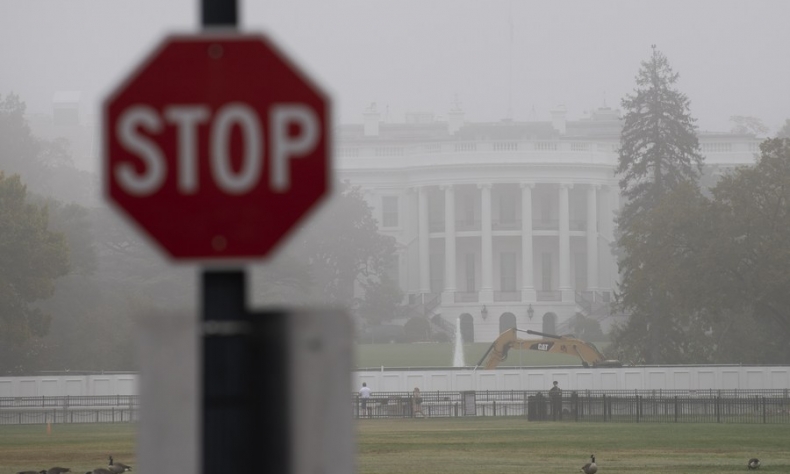Do Sanctions Really Work?

When addressing regional and international issues, war and sanctions are not good options; dialogue and negotiation are the fundamental way out.
Sanctions are increasingly employed by the U.S. to promote the full range of its foreign policy objectives. Yet all too often they turn out to be little more than expressions of U.S. displeasure or disapproval, proving to be blunt instruments that are unlikely to achieve desired results, and may even produce unintended and counterproductive consequences.
U.S. President Joe Biden’s use of sanctions as part of foreign policy has brought the international nuclear deal with Iran to almost an end, and the U.S. imposed more new sanctions on Iran at the beginning of 2023.
The use of sanctions as a deterrent weapon raises an important question: Are they capable of actually changing the behavior of states, or are there other factors that affect their effectiveness?
Excessively used
Sanctions are defined as mostly economic but also political and military penalties introduced to alter another country’s political or military behavior to accomplish foreign policy ends.
As manifested by history, sanctions, either comprehensive or selective, may take the form of commercial and financial policies that typically ban customary trade and financial relations, block the sanctioned country’s ports, and reduce or remove diplomatic ties. They also include withdrawal of diplomatic relations, visa denials, negative votes in international financial institutions, foreign assistance reductions and cut-offs, export and import limitations, asset freezes, tariff increases, revocation of most favored nation trade status, cancellation of air links, as well as prohibitions on credit, financing and investment. Arms embargoes and even targeted military strikes are also available options. Sanctions can also be applied to political leaders or individuals in the business community, including freezing their assets or imposing travel bans on them.
Sanctions have been a predominantly American weapon since World War II, and the U.S. has been by far the world’s most prolific user of economic sanctions. For much of that time, it has acted alone, and its willingness to throw its economic weight around to change other countries’ behavior has remained a constant. For example, the U.S. has sanctioned a number of countries such as Syria, Venezuela and Ethiopia in an attempt to interfere in their domestic affairs. It has introduced additional sanctions on the Democratic People’s Republic of Korea over the country’s nuclear program.

China has also been targeted. In addition to initiating a trade war, the U.S. has imposed illegal sanctions on Chinese officials under the pretext of the so-called human rights issues related to Tibet, which gravely interfered in China’s internal affairs and violated basic norms governing international relations. To further strangle China’s technology sector, the Biden administration in 2023 pressed the Netherlands and Japan to join the U.S. in restricting exports of semiconductor technology to China. Washington is also reportedly considering banning all sales to Chinese telecommunications equipment giant Huawei by U.S. suppliers, including Intel and Qualcomm. Such a move runs counter to the principles of a market economy, tramples on the basic rules that govern international trade and reflects how desperate the U.S. has become as it goes to greater lengths to try to suppress China’s technological progress.
Double-edged swords
However, most U.S. sanctions have not brought about their intended results, and prove to be double-edged swords. They not only fail to resolve security issues, but also cause more economic challenges, harming the lives of ordinary people, hastening global conflicts, aggravating existing tensions and further escalating division and confrontation. The sanctions on Russia during the Russia-Ukraine conflict, for example, have led to serious global repercussions.
The U.S. has restricted the sale of Russian raw materials and energy, worked to prevent Russia from obtaining defense and information technologies, imposed financial sanctions on Russian banks, curtailed Russia’s access to foreign capital and financial markets, frozen the assets of wealthy and powerful Russian citizens and restricted their ability to travel. Biden has explicitly stated that the U.S. intends to “crater” the Russian economy. According to reports, after the Biden administration announced a ban on oil, gas and other energy imports from Russia in March 2022, the European Commission unveiled plans to cut EU dependency on Russian gas by two thirds and agreed at the end of May to stop seaborne imports of Russian oil by year end. The United Kingdom announced a phase down to zero use of Russian oil by the end of 2022.
Russia is a major exporter of oil, grain and other major commodities, from which nearly a quarter of the world’s wheat supplies come. As the world economy has become considerably more integrated because of globalization, Russia-targeted sanctions are having far greater global repercussions than similar measures previously placed on other countries. Western sanctions on Russia have hit equity markets around the world and sent the prices of oil and wheat soaring. Escalating unilateral sanctions fractured global industrial and supply chains and hurt the livelihoods of people of many countries, especially those in low-income countries in Africa and the Middle East, who have no responsibility for paying for geopolitical conflicts and major-country competition.

Russia accounted for roughly 40 percent of the EU’s gas imports, 25 percent of its oil imports, and 47 percent of its coal imports, according to the EU’s statistics office, making Russia the most important fuel supplier of the EU. The ensuing sanctions against Russia could harm Europe’s energy supplies and stall its economic growth. Although European leaders agreed to reduce natural gas demand by 15 percent and confirmed their commitment to finding alternatives, this consensus may not last long, as banning Russian imports has sent energy prices soaring for European consumers, and further dimmed European people’s prospects for better standards of living. European leaders sensed the predicament the sanctions had put them in and began to back away from the united stance.
Multiple examples are confirming that sanctions are inefficient and ineffective weapons against the U.S. administration’s claims. This is because other factors influence their effectiveness. These include, inter alia, the economic strength of the sanctioned countries, the strength of public opinion within the initiator countries, the extent to which other countries are committed to applying sanctions, and the possibility of the emergence of more powerful alliances to circumvent the sanctions.
Moreover, sanctions may be an easy political sell, but they can backfire and expose the inability of the United States. The U.S. Federal Reserve last year introduced seven interest rate hikes to curb rising inflation, which is being exacerbated by the Ukraine crisis. The surge in prices of crude oil and other commodities that have resulted from the crisis has put additional upward pressure on inflation in the U.S. While the U.S. Government can take steps to help manage and assuage some of the negative effects on the U.S. economy, it is not clear that after a period of very painful and weaker economic growth what will be looming ahead.
The right choice
The willful wielding of the big stick of sanctions can never guarantee peace and security, and the U.S. should not continue to deploy the same tactics that have failed over and over again. Additionally, U.S. sanctions should not be confused with those imposed by the UN, and unilateral sanctions have no basis in international law and should be rightly opposed.
When addressing regional and international issues, war and sanctions are not good options; dialogue and negotiation are the fundamental way out. All efforts conducive to a peaceful settlement should be encouraged and supported.
 Facebook
Facebook
 Twitter
Twitter
 Linkedin
Linkedin
 Google +
Google +










